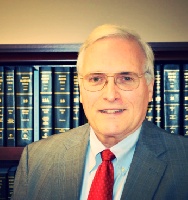Fosters Trusts Lawyer, Alabama
Herbert E. "Chip" Browder
✓ VERIFIEDEstate Planning, Wills & Probate, Trusts, Elder Law, Tax
The Browder & Welborn Law Office is a family-oriented law firm that focuses on protecting our clients' families, their family businesses and their ass... (more)
Laura K Gregory
Real Estate, Wills & Probate, Trusts, Estate
Status: In Good Standing Licensed: 36 Years
Brian Avery Robertson
Business Organization, Estate Planning, Trusts
Status: In Good Standing Licensed: 20 Years
Cynthia Vines Butler
Trusts, Family Law, Divorce & Family Law, Medical Malpractice
Status: In Good Standing Licensed: 22 Years


